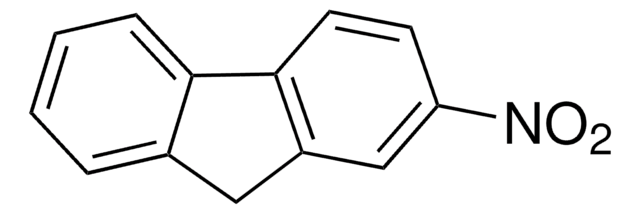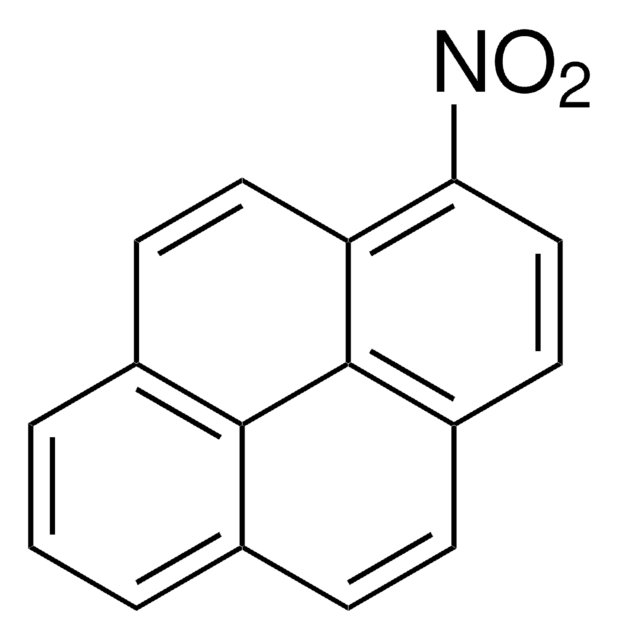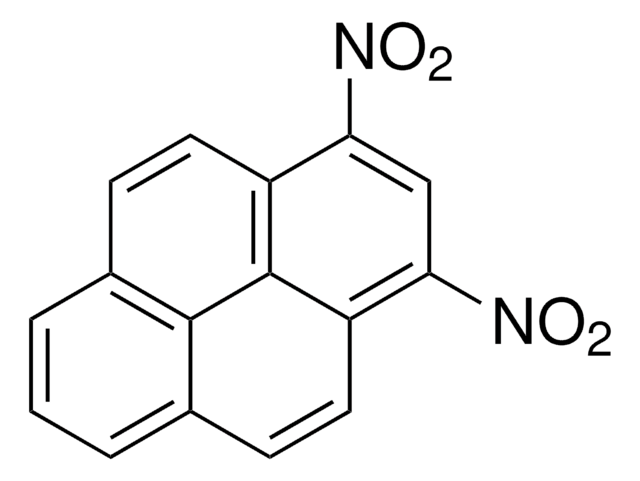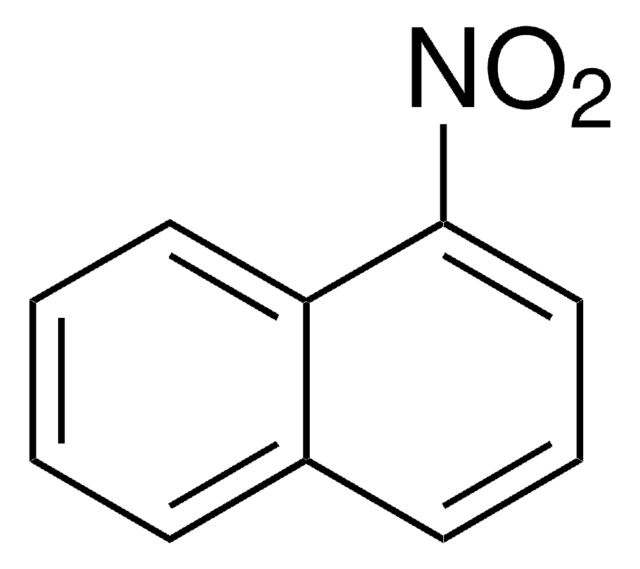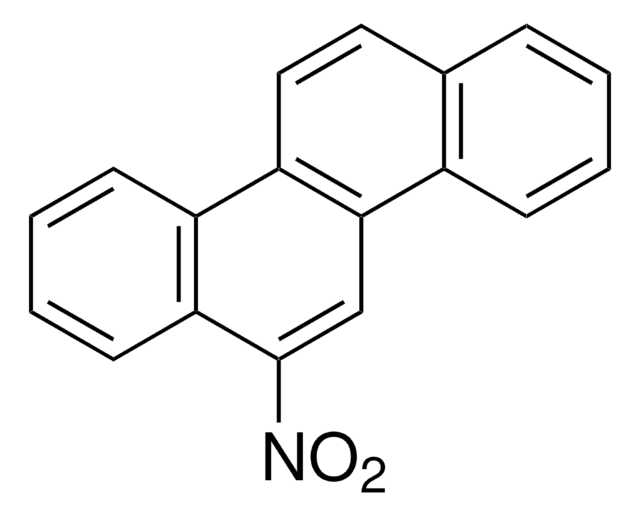All Photos(1)
About This Item
Empirical Formula (Hill Notation):
C14H9NO2
CAS Number:
Molecular Weight:
223.23
Beilstein:
1877509
EC Number:
MDL number:
UNSPSC Code:
12352100
PubChem Substance ID:
NACRES:
NA.22
form:
powder
Assay:
93%
Recommended Products
Quality Level
Assay
93%
form
powder
mp
141-144 °C (lit.)
SMILES string
[O-][N+](=O)c1c2ccccc2cc3ccccc13
InChI
1S/C14H9NO2/c16-15(17)14-12-7-3-1-5-10(12)9-11-6-2-4-8-13(11)14/h1-9H
InChI key
LSIKFJXEYJIZNB-UHFFFAOYSA-N
Looking for similar products? Visit Product Comparison Guide
Related Categories
Storage Class Code
11 - Combustible Solids
WGK
WGK 3
Flash Point(F)
Not applicable
Flash Point(C)
Not applicable
Personal Protective Equipment
dust mask type N95 (US), Eyeshields, Gloves
Choose from one of the most recent versions:
Certificates of Analysis (COA)
Lot/Batch Number
Don't see the Right Version?
If you require a particular version, you can look up a specific certificate by the Lot or Batch number.
Already Own This Product?
Find documentation for the products that you have recently purchased in the Document Library.
Customers Also Viewed
Karla I Garfias-Gonzalez et al.
Molecules (Basel, Switzerland), 20(5), 8548-8559 (2015-05-20)
Two new classes of dendrimers bearing 8 and 32 fluorene donor groups have been synthesized. The first and second generations of these porphyrin-PAMAM-fluorene dendrimers were characterized by 1H-NMR, 13C-NMR, FTIR, UV-vis spectroscopy, elemental analyses and MALDI-TOF mass spectrometry. The UV-vis
Application of 9-nitroanthracene as a matrix for laser desorption/ionization analysis of fluorinated fullerenes.
Alexey V Streletskiy et al.
Rapid communications in mass spectrometry : RCM, 18(3), 360-362 (2004-02-03)
B E Butterworth et al.
Mutagenesis, 16(2), 169-177 (2001-03-07)
Commercial anthraquinone (AQ) (9,10-anthracenedione) is produced by at least three different production methods worldwide: oxidation of anthracene (AQ-OX), Friedel-Crafts technology (AQ-FC) and by Diels-Alder chemistry (AQ-DA), with the final product varying in color and purity. AQ-OX begins with anthracene produced
M J Dennis et al.
Food additives and contaminants, 1(1), 29-37 (1984-01-01)
A method is described for the sample clean-up and estimation of nitropolycyclic aromatic hydrocarbons (nitro-PAH) in foods. The analysis involves the novel use of a coupled capillary gas chromatograph/thermal energy analyser and provides a detection limit for 1-nitropyrene of 12
Hiromichi Akizawa et al.
Chemical & pharmaceutical bulletin, 52(1), 41-46 (2004-01-08)
A comparative study was conducted to elucidate the mechanism underlying the separation of poly-aromatic-hydrocarbons (PAHs) and related compounds thereof on a column packed with silica gels modified with Ni(II)- or Cu(II)-phthalocyanine derivatives (PCS) (Ni- or Cu-PCS(D) column) and commercially available
Our team of scientists has experience in all areas of research including Life Science, Material Science, Chemical Synthesis, Chromatography, Analytical and many others.
Contact Technical Service

